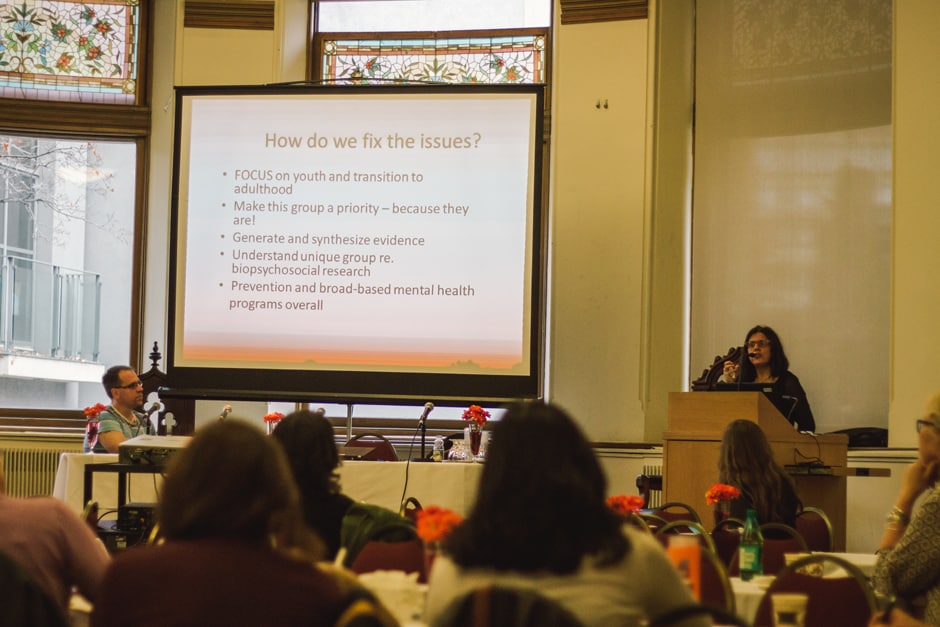Mental health is a crisis taking over Canadian universities. According to one estimate, 89 per cent of university students claim to feel overwhelmed.
In a bid to address the mental health crisis on campuses, students, faculty, and administrators from across Ontario gathered at Victoria College on October 30 for the Minding our Minds conference.
Accordingly to University of Toronto provost Cheryl Regehr, the conference’s keynote speaker, university students are at the highest risk for mental health issues.
Seventy-five per cent of mental illnesses emerge before the age of 25, and suicide is the leading cause of death for Canadians aged 15–24.
A major factor in mental health development for university students — first-year students in particular — is that they are in a transitional phase.
Many first-year students are experiencing independence for the first time, which brings about new challenges and stress to school life.
Achieving balance
Although stress levels play a key role in mental health, Regehr asserted that stress is also an important factor in challenging oneself. Regehr said that people who perform best in society tend to fall in the middle of the stress spectrum — too much stress is bad, just as too little stress is bad.
“If stress wasn’t a good thing, who would ever run for government?” Regehr joked.
According to Mark Kingwell, professor of philosophy, balance is the most important thing for students to achieve.
“Think about what you want to get out of being here in the first place, and everything follows back on that,” Kingwell said. “Do I want to work this hard for an A? Or am I okay with a B if that means I can get involved with extra-curriculars?”
During the conference’s student session, students addressed things that both help and hinder students in university.
Andrew Echevarria, a student panelist, said that prescription drugs are in high use in populations of stressed students.
Echevarria also said that there is still a stigma surrounding mental health.
To that end, Kaleem Hawa, a student panelist and member of the Provostial Mental Health Committee, suggested support mechanisms that universities should adopt in order to create a more welcoming and safe environment for students with mental illnesses.
Noting that the first person someone suffering from a mental illness will often talk to is a friend or a campus leader, Hawa suggested the adoption of “mandatory training session for all teaching assistants to educate themselves on how to respond to a student who is stressed, anxious or depressed.” He also suggested that the university “prioritize those candidates who have shown a commitment to learning about mental health.”
He also noted that there is no clear policy outlining the steps to take when a student cannot complete an assignment due to mental illness.
Hawa suggested, “[The] University of Toronto needs to have clear policy on what exemptions are given to students with mental illness, and how accessibility services factor into that.”
High-stress environment
Jordan Peterson, professor of psychology, took an opposing stance, saying that the university environment is not toxic at all.
Every field involves competition, Peterson said, and that is simply replicated in university.
Peterson said that U of T should instead implement a mandatory time management class where students plan out their year, adding that implementing a mental health policy would prove too difficult because “relaxed guidelines are difficult to interpret and work with.”
Peterson referenced one client who was accommodated for a mental health illness during his undergraduate career, leading him to take eight years to complete his degree.
“[It] might be better to fail out in the first place and find something you are better at,” Peterson said, adding that such a scenario may work out better than being stuck in the competitive university system.
Nonetheless, both Peterson and Kingwell said that U of T is overworking students, which in turn contributes to high levels of stress.
Both cited the need for a re-evaluation of each class’ workload, as well as an assessment of whether the university gives students the skills needed to survive in the competitive academic environment.


